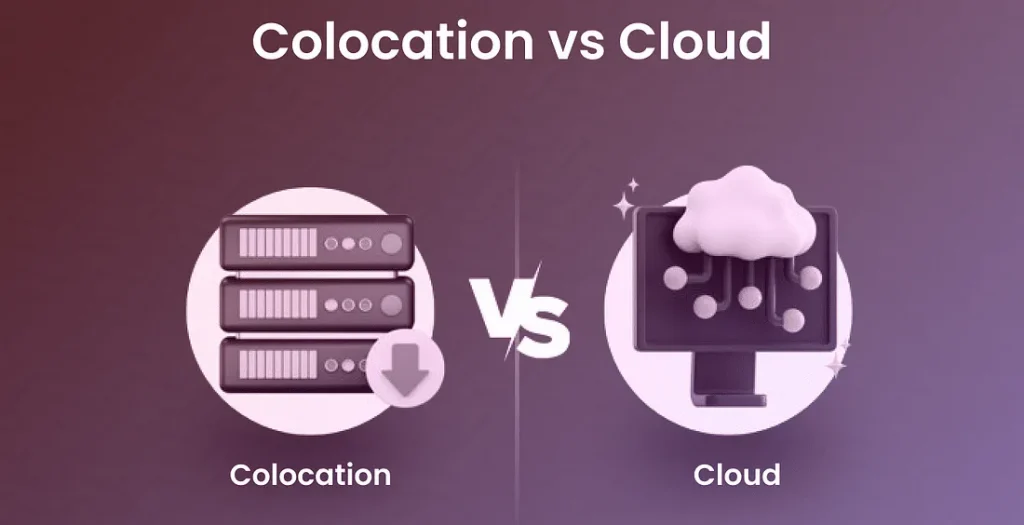When it comes to hosting your business’s IT infrastructure, I get it — it’s easy to think that AWS or Azure are your only options. After all, they’re everywhere, right? But here’s the thing: they’re not the only option, and they’re definitely not always the best option. Let me tell you about a game-changing alternative that can give you way more control and save you a ton of money: Managed Colocation.
This is where it gets interesting — did you know that cloud giants like AWS and Azure are basically just reselling the same kind of service you could get directly from a data center? Yep! They’re buying managed colocation services themselves, marking up the price 10X, and passing it along to you with a bit of scale and some convenient software mixed in (much you can replicate yourself regardless). So, what if you could cut out the middleman and take control of your own infrastructure for a fraction of the cost? Let’s dive into how managed colocation works and why it’s such a smart move for businesses.
What Exactly is Managed Colocation?
Okay, so let’s start with the basics. Managed Colocation means renting space in a super-secure data center where you can store your own servers and equipment. But — and this is important — you’re not stuck managing everything yourself. The data center staff handles all the day-to-day stuff like maintenance, monitoring, and security. So you get the best of both worlds: total control over your own hardware, without the headache of running it all.
Why I Love Managed Colocation
There are a bunch of reasons why managed colocation rocks, but let’s focus on the ones that get me really excited — control, cost savings, and some next-level networking perks. Seriously, if you’ve been thinking that cloud services are your only option, prepare to look behind the curtain.
1. It’s All About Control — Your Servers, Your Rules
One of the best parts of managed colocation is the control it gives you. With AWS or Azure, you’re renting space on their virtual machines, which is fine for some things, but you lose a lot of flexibility. In a managed colocation setup, you own the hardware. You can configure your servers exactly the way you want, tweak your storage however you like, and manage your own networking. Want to fine-tune your system for specific applications? Go for it. Need specialized hardware? It’s all yours!
But here’s the kicker: with managed colocation, you also get access to unlimited bandwidth at lower rates. That’s right — no bandwidth restrictions like you get in the cloud, and none of those surprise bills for data usage or storage fees. You just have your hardware in a data center, and the data center gives you all the bandwidth you need without adding crazy fees. You have the option to buy up to 100Gbps at a time, or more.
2. Way Cheaper Than the Cloud
Let’s talk money, because this is where things get super interesting. You know how everyone loves the cloud because there are no upfront hardware costs? That’s great — until your bills start stacking up. Every byte of storage, every gigabyte of data transfer, and every CPU cycle costs you. Plus, cloud providers hit you with data egress fees when you want to move your data out of their servers. Before you know it, your cloud bill has gone through the roof, and you’re wondering where all the money went.
Here’s where managed colocation pulls ahead. Yes, you buy your own hardware upfront, but after that, your costs are way more predictable. You’re paying a fixed monthly fee for space, power, cooling, and managed services in the data center. No surprise bills. And here’s the real kicker: you’re not paying a middleman like AWS or Azure to rent someone else’s data center space. You’re getting the same level of service that the big cloud providers use, but for a fraction of the cost.
Recently, AWS and Azure started charging between $3–5 per IPv4 IP Address. Most colocation providers such as the Metanet New York data center will give you them for 40 cents. If you currently hold hundreds of IP Address this could mean thousands per month or tens of thousands per year in savings.
3. The Big Secret: AWS and Azure Are Doing the Same Thing
Here’s the juicy secret: AWS and Azure are just renting space in data centers themselves. They’re buying managed colocation just like you could, but they’re marking it up 10X and reselling it to you. Let me put it this way: by paying AWS or Azure, you’re literally paying them a premium to do something you could do yourself — place your servers in the same kind of data center and have someone else manage the infrastructure for you.
In fact, you can even place your servers in the same exact data centers where AWS and Azure have theirs! And even directly connect to them with a fiber cross connect. That’s right, the same high-end, world-class facilities, but without the middleman. When most customers realize this, it becomes a total lightbulb moment. You’re paying AWS and Azure for something you could easily do yourself, for way less money, and with full control.
The Networking Perks of Managed Colocation
Alright, now let’s talk about the part that gets me really excited — networking. Managed colocation gives you killer networking options that you just don’t get with the cloud.
1. Unlimited Bandwidth, No Limits
In managed colocation, you get access to huge amounts of bandwidth at a much lower cost than in the cloud. Cloud providers are notorious for charging you for every bit of bandwidth you use, and if you’re moving a lot of data, those fees add up fast. But with managed colocation, there’s no throttling, no extra costs, just pure, unrestricted bandwidth. It’s perfect for businesses that need to move a lot of data without paying through the nose for it.
2. Superior Redundancy and Peering Options
One of the coolest parts about managed colocation is the way you can improve redundancy and have better control over your network. You can do things like:
- Direct peering with ISPs (Internet Service Providers), meaning your data moves more efficiently with fewer hops.
- BGP multihoming, where you connect to multiple ISPs at the same time. If one goes down? No problem. Your data just routes through the other provider. That’s the kind of reliability you want, and it’s hard to match with cloud services.
- Direct access to 100+ other networks. In many colocation facilities, you can connect to other networks directly, bypassing the public internet entirely. This gives you more secure and faster connections, which is great for industries that rely on quick, safe data transfers.
How Managed Colocation Compares to AWS and Azure
So, how does managed colocation stack up against the cloud heavyweights like AWS and Azure? Here’s where things get interesting.
1. Scalability and Flexibility
The cloud is fantastic for scalability. I’m not going to deny that. If your business is growing fast and you need to scale up or down on a dime, AWS or Azure are perfect for that. But if you’re looking for long-term flexibility and you want to set things up your way, managed colocation is the way to go. You can customize every aspect of your hardware and networking setup, which isn’t always possible in the cloud.
2. Performance and Latency
If you’re dealing with latency-sensitive applications, like real-time analytics or high-frequency trading, managed colocation is a clear winner. When your servers are sitting in a physical data center with direct access to the network, there’s a lot less abstraction, which means lower latency and better performance. Cloud services like AWS or Azure offer options like Direct Connect to reduce latency, but it still can’t beat the control you have with colocation.
3. Cost Structure: Colocation is Just Cheaper
Here’s the bottom line: Managed Colocation is much cheaper over time. With AWS or Azure, you’re constantly paying for every little thing — storage, bandwidth, compute power — and those fees grow as your business scales. Managed colocation, on the other hand, offers a fixed monthly cost. You invest upfront in your own hardware, and then you enjoy predictable, stable costs with none of the hidden fees.
So, Which Option Should You Choose?
Here’s the big takeaway: if you want complete control, lower costs, and customization without all the cloud markups, managed colocation is a fantastic option. You’re literally getting the same services that AWS and Azure are reselling, but you’re cutting out the middleman and saving a ton of money. Plus, you get to own your infrastructure and run it exactly how you want.
Cloud services like AWS and Azure are great for quick scalability and lower upfront costs, but keep in mind that as you grow, those bills will too. If you need instant scalability, the cloud can be a good choice — but if you’re looking to save money and get more control, managed colocation is where it’s at.
Honestly, for many businesses, a hybrid approach is the sweet spot — using colocation for your critical workloads where you need more control and lower costs, and cloud services for things that need to scale quickly. It’s the best of both worlds!


